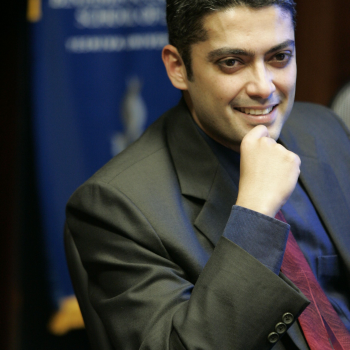
Spring Lectures 2020
 Wednesday 29 January 2020
Wednesday 29 January 2020
Aileen Fyfe, University of St Andrews
The production, circulation and consumption and ownership of scientific knowledge: historical perspectives
Who owns the content of scientific research papers, and who has the right to circulate them? These questions are at the heart of current debates about improving access to the results of research – but in this lecture, Aileen Fyfe will use the history of academic publishing to explore the origins of our modern concerns.
The Philosophical Transactions was founded in 1665, and is now the longest-running scientific journal in the world. This lecture will follow the Transactions from its early days as a private venture of its editor to becoming the property of the Royal Society. It will explore the basis of the Society’s claim to ownership (which had very little to do with copyright), and reveals the ways in which the Society encouraged the circulation, reprinting and reuse of material in the Transactions during the eighteenth and nineteenth centuries. It will end by considering how things changed in the twentieth century, as commercial interests became increasingly influential in academic publishing and as new technologies brought new opportunities for circulating knowledge.
Aileen Fyfe is Professor of Modern History at University of St Andrews.
Report to follow

Wednesday 5 February 2020
Christian Peukert (Católica Lisbon & ETH Zürich)
Digital Disintermediation and Efficiency in the Market for Ideas
Digital technology has allowed inventors to circumvent intermediaries, which affects licensing outcomes and efficiency in the market for ideas. We study these impacts theoretically and empirically, using data on over 90,000 license deals for books. Identification comes from quasi- experimental variation across product types over time. Consistent with digital self-publishing improving an author’s outside option, authors get more favorable license deals. In addition, ex-ante license fees reflect ex-post demand more accurately. This is consistent with additional entry generating more information. Such improvements can have large impacts on welfare in any markets in which product appeal is difficult to predict.
Christian Peukert is Assistant Professor for Information Systems at Católica-Lisbon and Senior Research Associate at the Center for Law and Economics at ETH Zurich. Christian is generally interested in questions related to how digital technologies affect firms, consumers and markets, especially from an innovation perspective. Before his academic career, Christian co-founded a record label that specialises in rap music.
Report to follow

Wednesday 12 February 2020
Lionel Bently (University of Cambridge)
Quotation under Copyright Law and the textual paradigm
Abstract Article 10(1) Berne Convention requires Members of the Union to permit quotations of works, so long as they are proportionate. comply with fair practice and are accompanied by attribution of source. Despite the fact that the quotation right applies as much to films, music, painting and architecture as to literary quotation, the concept of quotation has often been wrongly reduced to its textual paradigm (and its accompanying paraphernalia of incorporation within another text, with quotation marks, insetting and footnotes).
The power of this textual paradigm can be seen in the recent CJEU decisions in Spiegel Online, Funken Media and Pelham. While the CJEU recognised there might be quotation of music, it nevertheless demanded that for there to be a quotation the user must incorporate the extracted material in another work and have an intention to enter into dialogue with the quoted work. This requirement of “dialogue” is, it will be suggested, unclear, inconsistent with the ordinary meaning of the term quotation and incompatible with the legislative history of Article 10(1). The effect of its adoption is to place the EU in breach on international copyright law and to place undesirable restrictions on a mandatory exception that, interpreted according to its ordinary meaning, offers significant flexibility. Indeed, properly interpreted, Article 10(1) BC mandates globally an exception that is not dissimilar to the US concept of fair use.
Lionel Bently is Herchel Smith Professor of Intellectual Property Law at the University of Cambridge and Director of the Centre for Intellectual Property and Information Law (CIPIL).
Report to follow

POSTPONED TO AUTUMN 2020 (UCU STRIKE) – Wednesday 4 March 2020
Dev Gangjee (University of Oxford)
Timeless Signs or Signs of the Times? Reconciling Innovation and Tradition for Geographical Indications
Geographical indications like Prosciutto di Parma, Stilton and Rioja are associated with traditional regional products. These products are perceived as authentic because they are traditionally made. In the words of the relevant legislation, the product specification needs to refer to the ‘authentic and unvarying’ production method. Yet products constantly adapt to new markets, tastes and technologies. To what extent can the producer collectives responsible for these traditional products innovate within geographical indication regimes, without the product losing its sense of identity? Climate change is already forcing those who grow grapevines or coffee to confront this question. The talk explores the conditions under which innovating within tradition may or may not be acceptable.
Dev Gangjee is Professor of Intellectual Property Law within the Law Faculty and a Tutorial Fellow at St Hilda’s College
Autumn 2019 Lectures
Wednesday 13 November 2019
Naysun Alae-Carew, Managing Director, Blazing Griffin
Intellectual Property “terms of trade”: The challenges for entertainment businesses in the emerging platform economy
Report available here.
Wednesday 9 October 2019
Catherine Stihler, CEO of The Open Knowledge Foundation
Reflections on the Making of EU Copyright Law
Report available here
For a list of all Public Lectures 2015-19: https://www.create.ac.uk/events/public-lectures/

